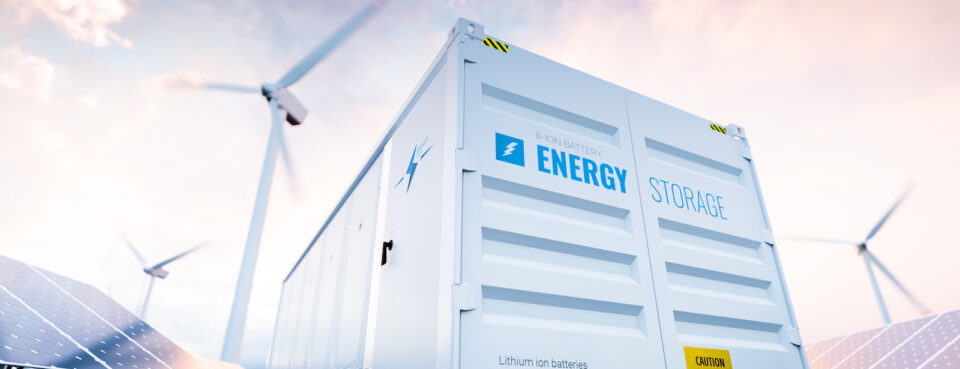BESS plays a vital role within renewable energy generation and distribution.
Renewable energy includes wind, solar and hydro, which rely on natural conditions to produce energy, and are therefore ‘uncontrollable’ sources.
Solar panels will only generate energy while the sun is shining but when there is cloud cover and at night they cease to produce.
Wind turbines will only generate energy as long as there is enough wind to turn the turbines.
Some hydro-power energy sources will only generate energy as long as there is enough water in the dam/s, there is no drought, or there is enough rainfall.
All these natural energy sources rely on weather patterns that cannot be controlled.
Demand for electricity does not correspond equally with the supply being generated. Peak energy requirements are usually at night or during times of extreme temperature, which is often the time renewables are not producing.
A BESS solves these problems associated with uncontrollable energy generators by storing energy for distribution at a later time. Hence a BESS makes the difference by turning an uncontrollable source into a controllable asset.
BESS also provide remote and rural locations with the capacity to obtain reliable energy sources. These communities may experience poor main grid connection or none at all. Setting up a microgrid with a BESS at its centre provides these communities with autonomy over their energy needs. Remote areas are also more likely to utilise renewable energy generators, thus contributing to a more sustainable future.
Integrating a BESS with renewable energy systems and the main grid can stabilise the whole system by providing energy when the grid is experiencing peak demand, outages or faults. A BESS also makes better use of renewable sources by exporting energy back into the main grid when they are experiencing high generation.
A BESS supports the main grid when peak demand comes during times of higher electricity costs, by supplying from batteries charged by renewable sources. Supporting the main grid in this way is known as peak shaving.
BESS are the mainstay of renewable energy sources, helping us build a more sustainable future.
With a wide range of available BESS solutions, including containerised units and those installed in dedicated buildings, users may need to take the time to evaluate the best option for their needs. DEUTZ New Zealand recommends selecting a BESS that matches your power generation capacity and is suitable for your specific local area.
Our recently developed DEUTZ battery storage system offers advanced operation optimisation for BESS and integrated equipment. This intelligent solution incorporates technology modules for demand prediction, renewable generation prediction, and BESS operation optimisation. When used in conjunction with the DEUTZ microgrid system, customers can minimise operational costs and maximize profits throughout the lifetime of the entire system.
To assist in designing a system that perfectly aligns with your requirements, our team of DEUTZ technical experts and authorized dealers are available to provide additional information and guidance.


